Our Services
COMPLETE WOUND MANAGEMENT
Wound management involves a comprehensive approach to the care and treatment of wounds to promote optimal healing, prevent complications, and minimize scarring. The specific steps in wound management depend on the type, size, and cause of the wound.
COMPLETE WOUND MANAGEMENT
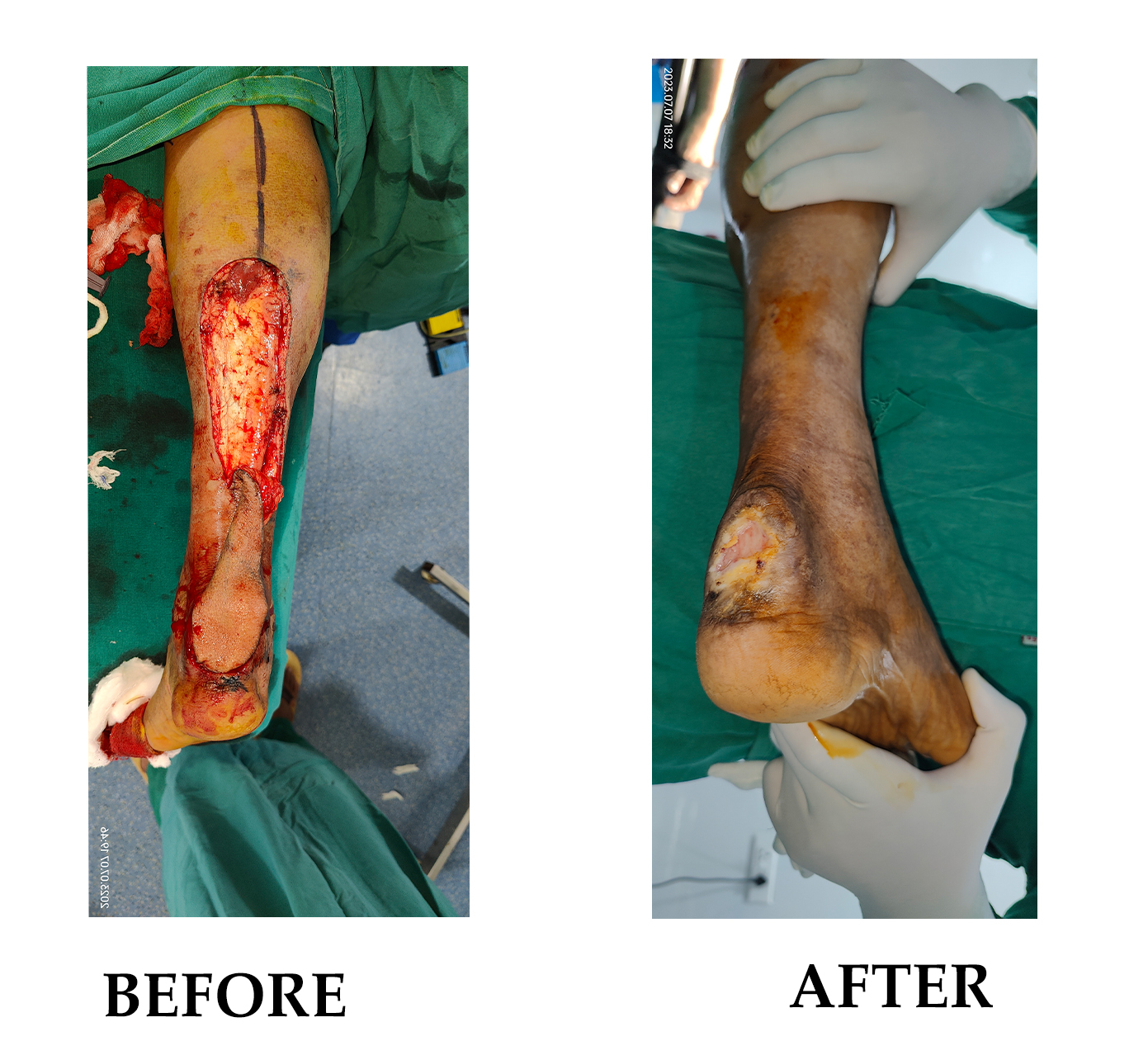
CHRONIC ULCERS
Chronic ulcers are wounds that fail to progress through the normal stages of wound healing and persist for an extended period, often more than 4 weeks. Chronic ulcers can result from various underlying conditions and factors, and their management requires a comprehensive and multidisciplinary approach.
DIABETIC FOOT ULCERS
Diabetic foot ulcers are a common complication of diabetes and can lead to serious consequences if not properly managed. Individuals with diabetes are at an increased risk of developing foot ulcers due to factors such as peripheral neuropathy, poor circulation, and susceptibility to infections. Proper care and management are crucial to prevent complications and promote healing.
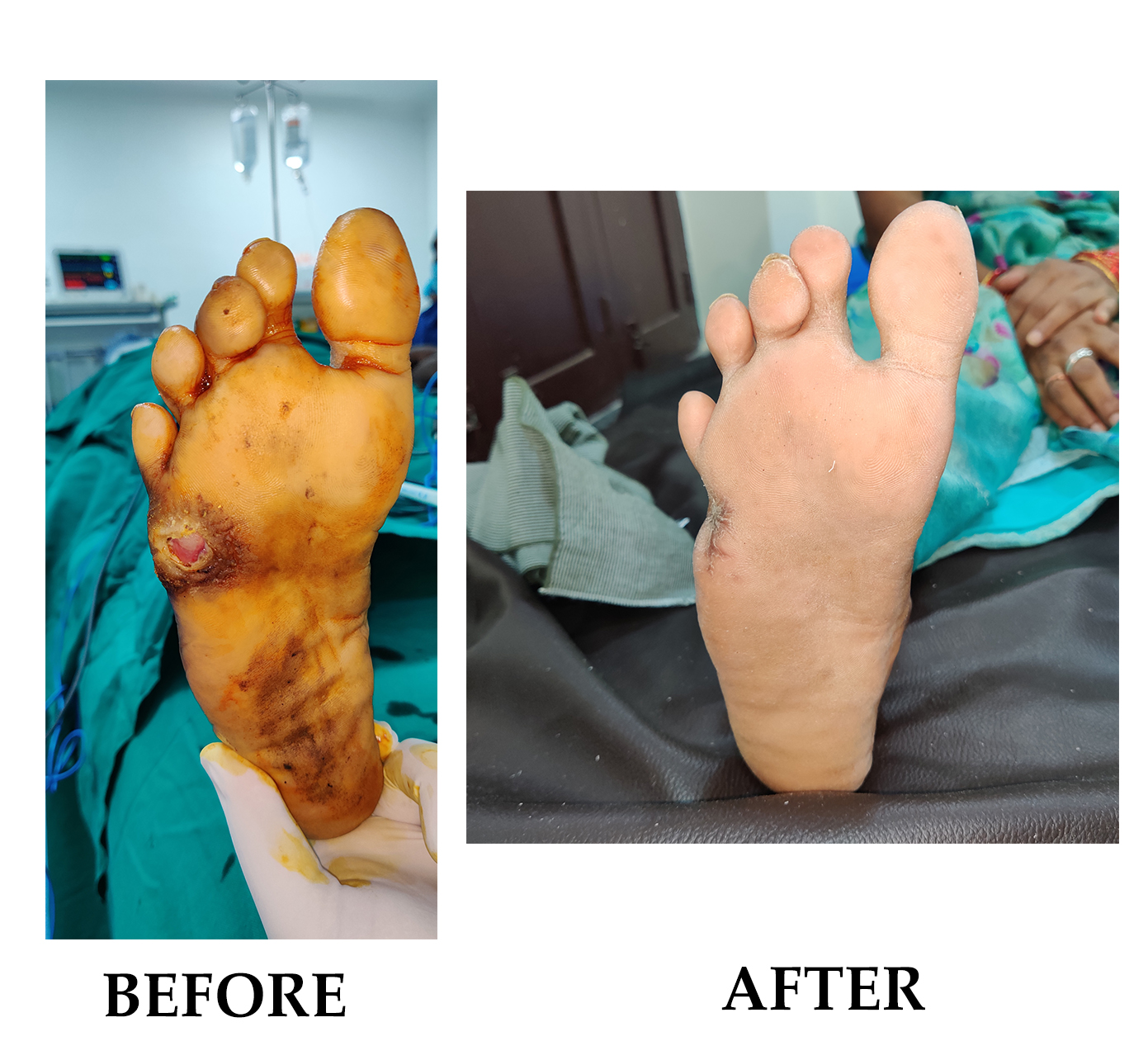
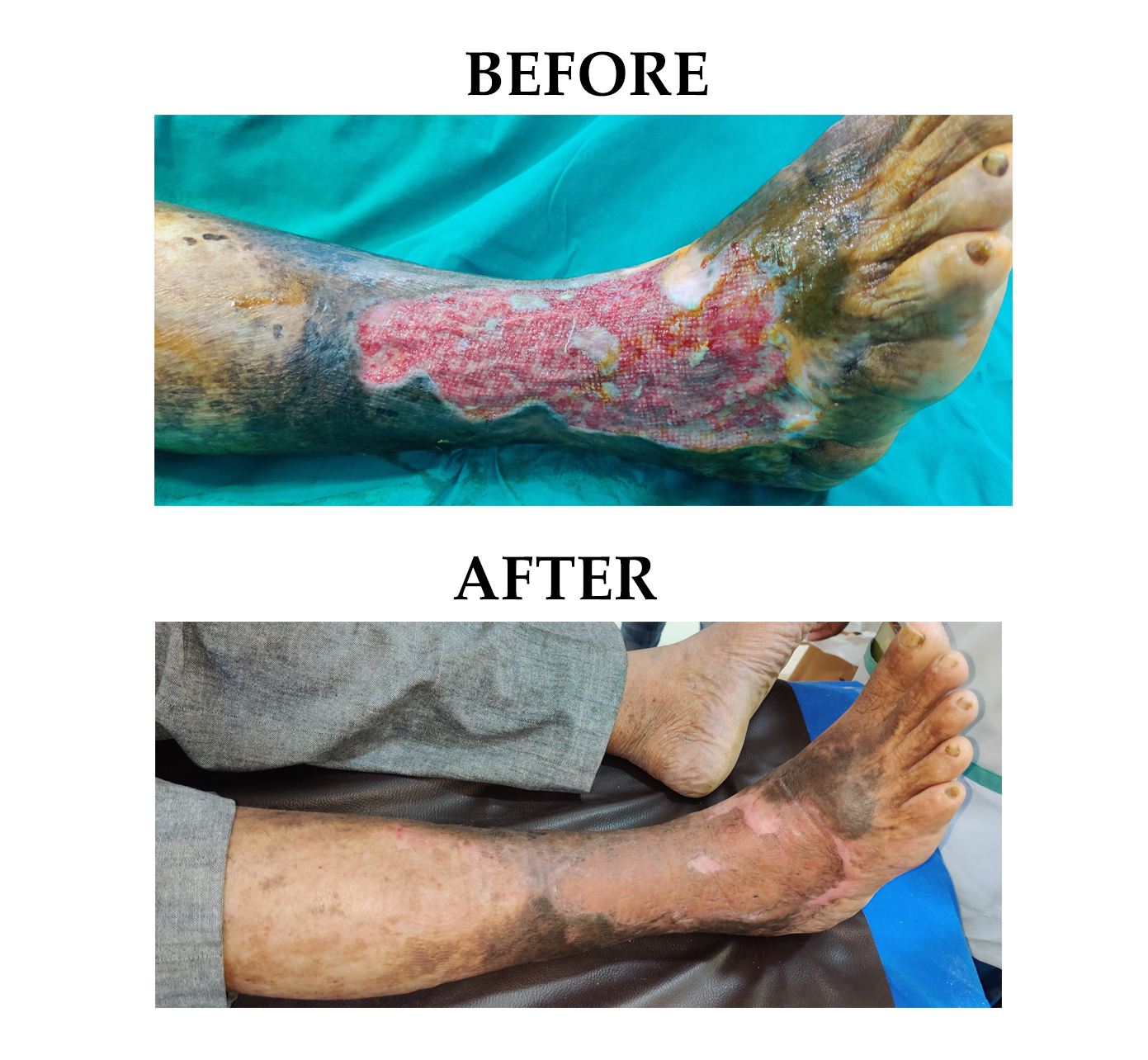
VARICOSE VEINS VENOUS ULCERS
Varicose veins are enlarged, twisted veins that most commonly occur in the legs. In some cases, varicose veins can lead to complications, including the development of venous ulcers. Venous ulcers are open sores that typically form on the lower legs and can be painful and slow to heal. Managing varicose veins and preventing venous ulcers involves addressing the underlying venous insufficiency and implementing appropriate care measures.
ARTERIAL ULCERS
Arterial ulcers are wounds that develop due to insufficient blood supply to tissues, often resulting from peripheral arterial disease (PAD). These ulcers typically occur on the lower extremities, especially the feet and toes, where blood flow is compromised. Arterial ulcers can be challenging to manage and may require a comprehensive approach to address the underlying vascular issues and promote wound healing.

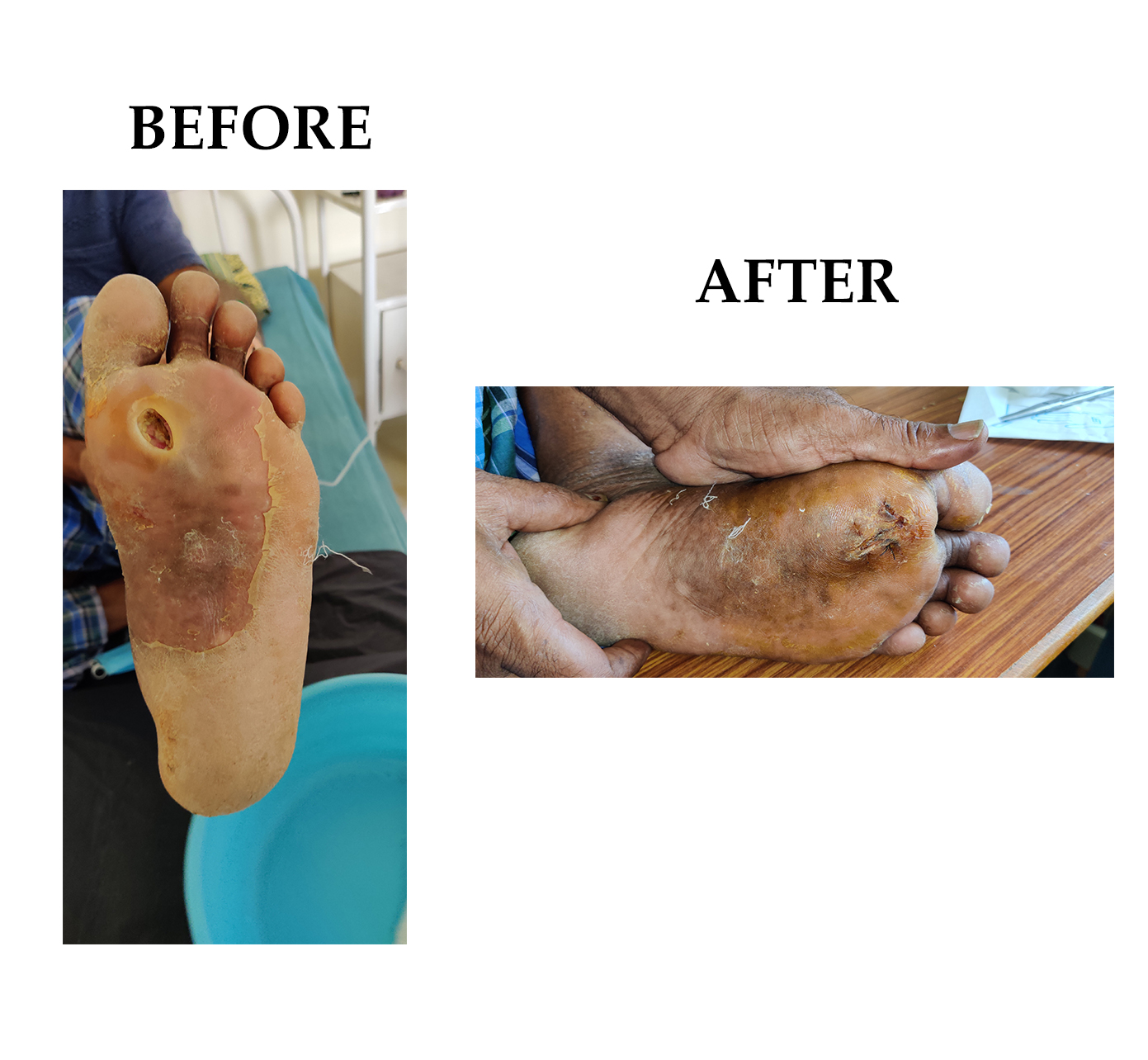
TROPHIC ULCERS
The term “trophic ulcers” is often used to refer to chronic, non-healing ulcers that result from poor circulation, nerve damage, and other factors affecting tissue health. These ulcers can be associated with various underlying conditions, and management typically involves addressing the specific causes and promoting wound healing.
BED SORES
Bedsores, also known as pressure ulcers or decubitus ulcers, are injuries to the skin and underlying tissue resulting from prolonged pressure on the skin. They often occur in areas where the bones are close to the skin surface, such as the heels, hips, elbows, and back. Bedsores are a significant concern, particularly for individuals who are bedridden, have limited mobility, or spend extended periods in a wheelchair.
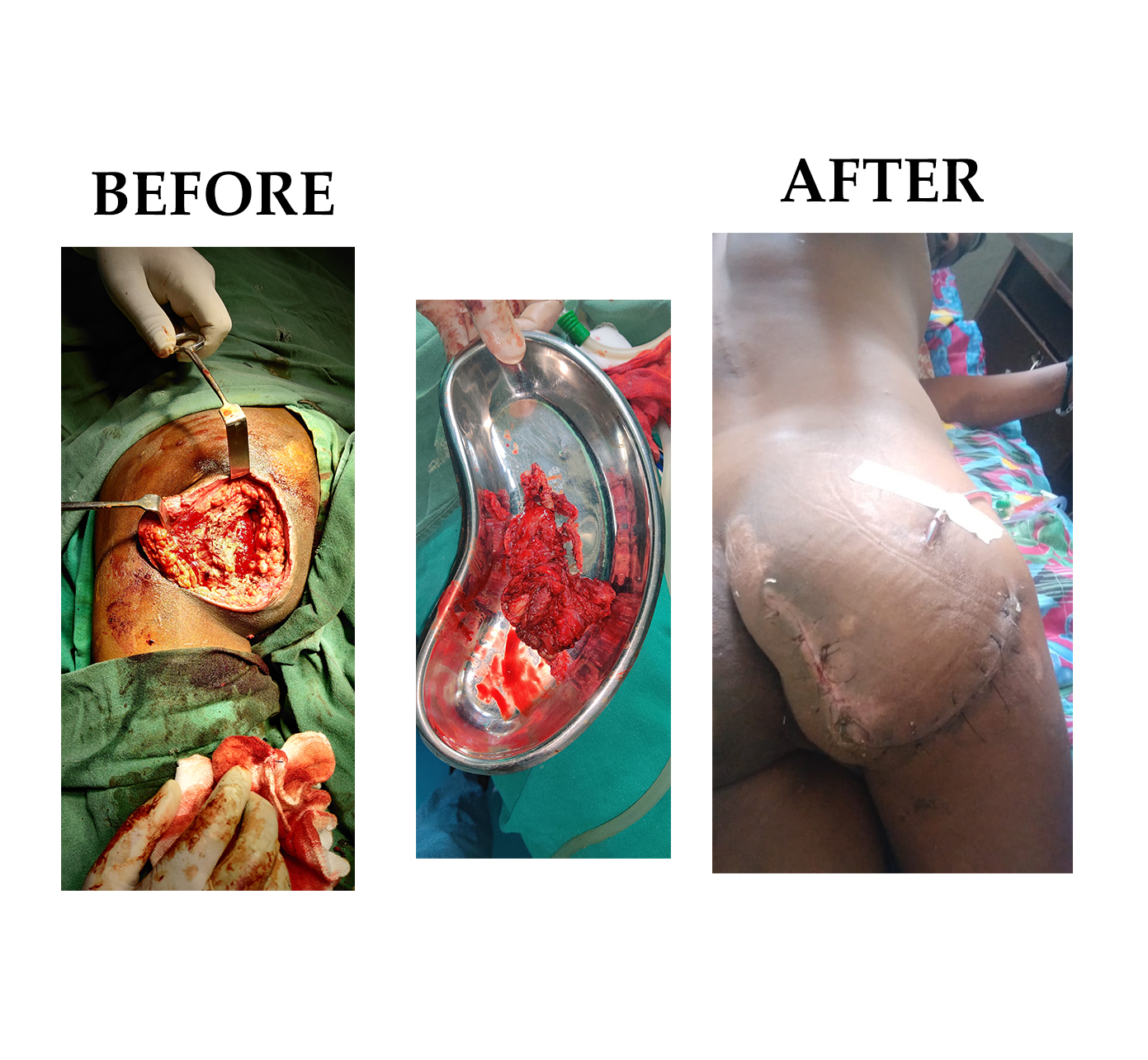
POST TRAUMATIC ULCERS
Post-traumatic ulcers refer to wounds that develop as a result of physical injury or trauma to the skin and underlying tissues. These ulcers can occur due to various types of trauma, including burns, crush injuries, cuts, or other forms of tissue damage. The management of post-traumatic ulcers involves addressing the specific characteristics of the wound, promoting healing, preventing infection, and minimizing complications.
Special Care
100 % Cure Treatment
Lorem Ipsum is simply dummy text of the printing and typesetting industry. Lorem Ipsum
Make An Appointment
Our location
Hanumakonda
Opening Hours
Mon-Sat: 6am-10pm
Contact
Phone: + 9989 750 933
Email: vedha@gmail.com
